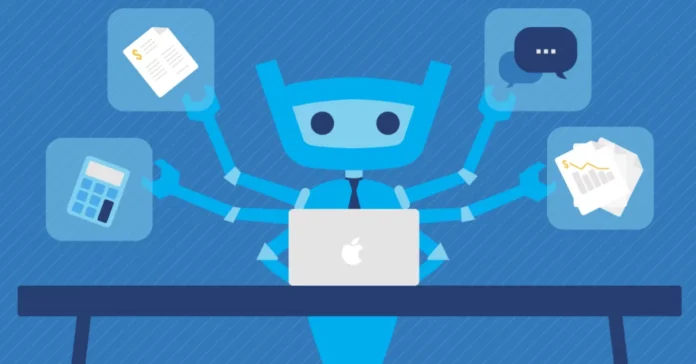In the era of automation, an accountant can have the scary thought of losing their jobs to robots. But, automation is about to overtake repetitive tasks from accountants while asking them to acquire a higher level of education with efficiency in handling the latest accounting technologies.
With the digital transformation in the accounting industry, businesses are putting pressure on accounting firms to deliver the latest innovations. Here Experlu explains what new changes a firm needs to cope with the digital era.
What is digital transformation in accounting?
Digital transformation in accounting merges physical and digital processes into decentralized systems that include access to distributed ledgers or blockchains and Big Data. Technologies such as artificial intelligence, blockchain technology, machine learning, and the internet of things are changing our world and challenging accounting firms. However, it is better to learn these technologies to adopt intelligent ways in our working ethics rather than getting scared of them.
Will accounting be automated?

No, accounting tasks that require human intelligence, like analysing and interpreting data, will not be automated. But, the technologies will reduce the need for accountants to do repetitive bookkeeping tasks and other minor daily activities. An AI-powered robot can never replace an accountant’s experience and knowledge in viewing balance sheets, making financial decisions, and cash flow forecasting.
Though an AI robot can evaluate numbers faster and more efficiently than humans, we need human compassion and interaction to assist clients. Accountants can use experience in their work and make new connections with clients, but automation cannot do so.
Benefits of digital transformation on accounting firms
Accounting firms embracing digital transformation are about to make several benefits in the industry.
Enhanced security
Cloud-based Accounting solutions are built to provide a dynamic foundation for the new era and help businesses to accelerate their performance. They help small to mid-sized accounting firms follow regulations and provide in-built data protection and security features like anti-virus, anti-ransomware, and anti-malware protection, guarding your accounting firm against accidental data loss or data breaching.
Smart use of technology
As your firm starts using advanced practice management software, they can easily track time from a project status and employee performance. It also provides them with a means of translating raw data into insights that further helps firms to cut down cost, find revenue streams, improve performance, and streamline accounting operations.
Improved recruitment
Individuals with advanced professional education degrees pray for working from home to save their time. The cloud-based solutions help accounting firms to recruit different talents regardless of geographic location and provide them with flexible working hours to retain professionals for a more extended period. Additionally, embracing automation reduces tedious administrative tasks and keeps talented professionals working on essential accounting areas.
Happy clients

Clients want their accountants to be available any time of the day throughout the year and offer services via multiple digital channels. Using cloud-based accounting solutions, firms can easily offer web-based client portals and mobile applications to allow them to pay invoices, share documents securely, complete e-signatures, etc., quickly and conveniently.
Automation
As previously discussed, with digital accounting techniques in the market, we learn how to automate accounting tasks. How is automation beneficial? It saves us time, money, and effort that a team of experts have been giving for the past few decades. Moreover, it removes the chances of human error, fraud, and tedious manual tasks.
It doesn’t replace human accountants but assists them in faster and wiser work. These accounting tools free up their time, allowing them to focus on major tasks that software cannot do.
No more geographic barrier
With the introduction of digital technologies, businesses have opened up doors to new marketplaces across the globe. A digital transformation in an firm means adopting digital technologies such as the internet of things, the cloud, the blockchain, communication software and other tools to allow remote working. Therefore, it increases workplace flexibility and will enable people to connect effectively with accountants from anywhere and anytime.
Data-driven decision making
Digital accounting ensures data-driven decision making. The software uses analytic tools that gain valuable insights into the data generated from digital interactions and provide better financial decisions. Additionally, these tools help in understanding consumer behaviour and expectations. You can also utilize the observations to improve your digital marketing strategies, content management, and business plans. Plus, you can make accurate predictions from the data to refine your strategy for business growth.
How to bring changes in your accounting career?

A few years back, an aspirant needed to be good at mathematics and understand accounting and finance regulations. However, it is still essential to have knowledge, expertise and proper education in accounting; learning how to use the latest tools and software is now the trend. Ask a professional at 123Financials to let you know what additional courses you need to take with training.
Stay updated with industry trends: Accountants need to learn to handle emerging technologies like cloud computing, blockchain technology, big data, and the internet of things. It may include taking up a technical course and understanding the use of the latest technologies. The faster you adapt to the changes in firms; the better opportunities are waiting for you.
Seek opportunities to learn more: Find out time from your daily schedule to learn using software that can enhance your work standards.
Accountants and bookkeepers need to expand their skills to work alongside machines. Additionally, they can take more advisory and strategic roles for businesses to stay out of the profession that robots can take in the next few years.
Conclusion
Most industries are slow and skeptical to transform their traditional working habits into ‘new normal’ ideas, and so are the firms. However, it is now vital to fuel their engine and start learning the use of the latest technologies to survive the competition. Automation will not kill the profession but will improve its working standards.
When you are ready to embrace the digital world, you must decide to modernize your financial operations by leveraging advanced software to automate your core financial functions. It will help you save time and money and provide a better view of your finances and business performance, among other outcomes.




